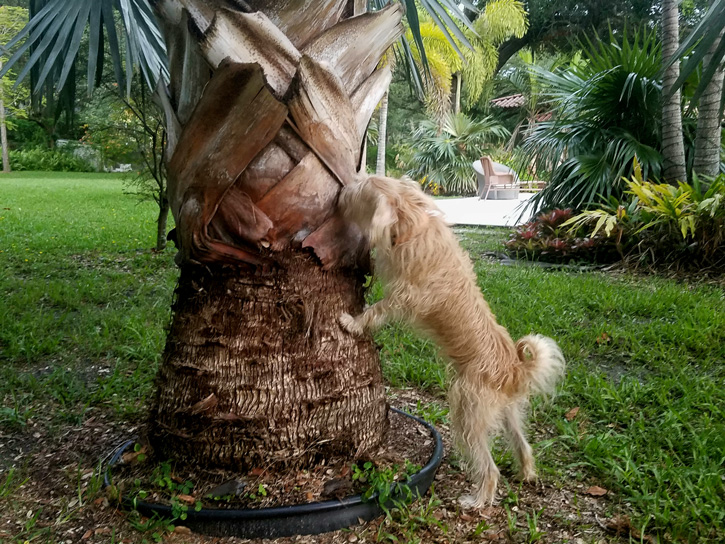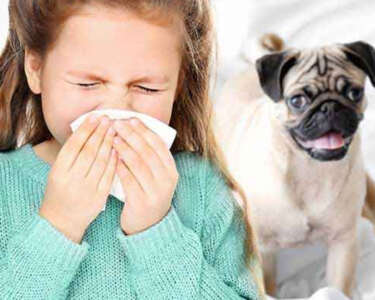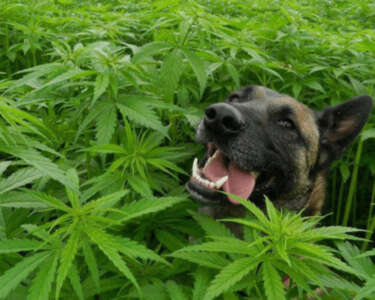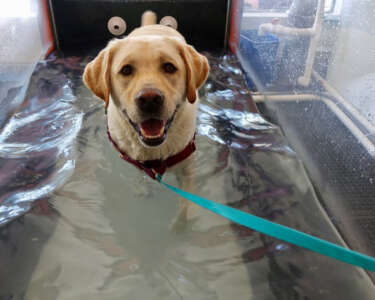Recently there has been great concern about the increase in leptospirosis infections reported in urban areas nationwide. It’s difficult to escape the news on TV, newspaper, and social media. And yes, dogs infected with leptospirosis are common in affluent and not-so-affluent urban areas in Miami.
But why is leptospirosis suddenly reemerging? To better understand it, let’s start with the basics: Leptospira is a bacteria that can cause disease of the liver and kidney, leading to permanent damage, or even death, if not treated in time. Because it infects humans and animals, it is considered a zoonotic diseases. It is transmitted by coming in contact with the urine of infected animals.
In the past, leptospirosis was considered a disease transmitted by wildlife in rural areas, however this has changed due to a number of factors. First, the urbanization of rural areas has displaced wildlife, pushing them into suburban areas and backyards where they can infect us and our pets. Secondly, an increase in our planet’s average temperature has led to an increase in hurricanes and floods. Natural disasters like these bring people in contact with water and soil contaminated with urine of infected animals. Leptospira can live longer in urine mixed with soil and water, as opposed to living in urine by itself. As the bacteria’s chances for survival increases, so does the risk of infection to people and animals. For this reason, we see more cases of leptospirosis infections after natural disasters. Last but not least, pet owners are not consistently vaccinating their dogs against leptospirosis, so there is no “herd immunity” against this disease (“herd immunity” refers to a situation where resistance to the spread of a disease is achieved by vaccinating at least 85 percent of the pets in a given area).
Leptospirosis is transmitted to dogs mainly when they come in contact with infected urine from raccoons, foxes, possums, rats, and mice. It is more commonly seen in hot, rainy seasons (our spring and summer in Miami) when dogs are thirsty and drink from infected stagnated waters, or when they step on infected waters and then lick their paws. The bacteria can enter the body through the mouth, wounds, mucous membranes, eyelids, and even can penetrate unbroken skin that has been softened by prolonged contact with water (i.e. through our feet if we have been walking in a flooded area). Cats can also get infected with leptospirosis, but it is less common. There is no vaccine available to protect humans or cats.
The signs of leptospirosis infection are non-specific: vomiting, diarrhea, weakness, fever, bleeding from the nose or rectum, weight loss, jaundice, renal and/or liver disease, amongst other symptoms. There are reliable diagnostic tests and effective treatments if an infected dog is taken for medical care early on in the disease process. Do not hesitate to look for medical care immediately if leptospirosis is a possibility. And most of all, remember that this is a preventable disease. Even though the most popular vaccine protects against only four of the many serovars (variations) of the bacteria, it does offer protection from the most common ones. If you live in an area with lush gardens, with an occasional fox, raccoon, or rodent visitor, or you live in a flood zone during hurricane season, then your dog and your family have a high risk of exposure to leptospirosis.
Vaccinate your dog; it’s not only your responsibility as a pet parent, but also a matter of public safety. Leptospirosis is in Miami to stay.
Dr Marta Sanchez-Emden is the founder of the Animal Health and Rehab Center in South Miami. She has been practicing Veterinary Medicine in Miami for over 20 years. As a Certified Veterinary Journalist, she is the resident veterinarian for various national TV shows. She authored the book “CHIHUAHUAS: How to Be Your Dog’s Best Friend,” available on Amazon. Follow her at youtube.com/ahrcvet, Facebook.com/dr.sanchezemden, Twitter @DrMartavet, and www.animalhealthrehab.com.














 Deering Estate
Deering Estate
 Massage Envy South Miami
Massage Envy South Miami
 Calla Blow Dry
Calla Blow Dry
 My Derma Clinic
My Derma Clinic
 Sushi Maki
Sushi Maki
 Sports Grill
Sports Grill
 The Healthy Kitchen
The Healthy Kitchen
 Golden Rule Seafood
Golden Rule Seafood
 Malanga Cuban Café
Malanga Cuban Café

 Kathleen Ballard
Kathleen Ballard
 Panter, Panter & Sampedro
Panter, Panter & Sampedro
 Vintage Liquors
Vintage Liquors
 The Dog from Ipanema
The Dog from Ipanema
 Rubinstein Family Chiropractic
Rubinstein Family Chiropractic
 Your Pet’s Best
Your Pet’s Best
 Indigo Republic
Indigo Republic




 ATR Luxury Homes
ATR Luxury Homes


 2112 Design Studio
2112 Design Studio
 Hamilton Fox & Company
Hamilton Fox & Company
 Creative Design Services
Creative Design Services
 Best Pest Professionals
Best Pest Professionals
 HD Tree Services
HD Tree Services
 Trinity Air Conditioning Company
Trinity Air Conditioning Company
 Cisca Construction & Development
Cisca Construction & Development
 Mosquito Joe
Mosquito Joe
 Cutler Bay Solar Solutions
Cutler Bay Solar Solutions


 Miami Royal Ballet & Dance
Miami Royal Ballet & Dance
 Christopher Columbus
Christopher Columbus
 Pineview Preschools
Pineview Preschools
 Westminster
Westminster
 Carrollton
Carrollton
 Lil’ Jungle
Lil’ Jungle
 Frost Science Museum
Frost Science Museum
 Palmer Trinity School
Palmer Trinity School
 South Florida Music
South Florida Music
 Pinecrest Orthodontics
Pinecrest Orthodontics
 Dr. Bob Pediatric Dentist
Dr. Bob Pediatric Dentist
 d.pediatrics
d.pediatrics
 South Miami Women’s Health
South Miami Women’s Health

 The Spot Barbershop
The Spot Barbershop
 My Derma Clinic
My Derma Clinic




 Miami Dance Project
Miami Dance Project

 Rubinstein Family Chiropractic
Rubinstein Family Chiropractic
 Indigo Republic
Indigo Republic

 Safes Universe
Safes Universe
 Vintage Liquors
Vintage Liquors
 Evenings Delight
Evenings Delight





 Atchana’s Homegrown Thai
Atchana’s Homegrown Thai
 Baptist Health South Florida
Baptist Health South Florida

 Laser Eye Center of Miami
Laser Eye Center of Miami
 Visiting Angels
Visiting Angels
 OpusCare of South Florida
OpusCare of South Florida

 Your Pet’s Best
Your Pet’s Best





 HD Tree Services
HD Tree Services
 Hamilton Fox & Company
Hamilton Fox & Company


 Creative Design Services
Creative Design Services